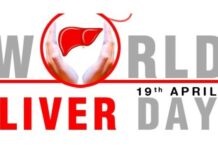In today’s recovery industry, what many people think of as ‘rehab’ is about as far from the prestigious environment of the Betty Ford Center as you can get.
New Delhi, December 01, 2017: “The rehab industry needs to be disrupted the same way Uber disrupted the taxi cab industry,” says treatment reform advocate and Hollywood producer Scott Steindorff, who is working with other leaders in the industry to modernize a field currently engulfed in crisis yet still entrenched in often-irrelevant-to-opioid-addict principles developed in the 1930s from the founders of Alcoholics Anonymous.
“I’m 34 years sober, incredibly connected in the recovery world and when I was asked three months ago, where should I send my nephew, I said, ‘I don’t know.’ Because rehab doesn’t work. You’re taking a lot of money, giving a lot of people a lot of false hope and what I have found consistently across the map is a high failure rate of people staying sober after rehab” according to thedailybeast.com.
What does a prominent rehab spokesperson have to say about these incendiary claims? Responds Nick Motu, vice president at the Hazelden Betty Ford Foundation, the nation’s largest non-profit treatment organization: “Well, you have to define what failure is—for instance, if you define failure as a relapse. But that’s not how we define failure. Relapse can be part of the disease process, and unfortunately like any other disease, relapses will happen. However, we strive for abstinence. That’s our ultimate goal.”
In today’s recovery industry, however, what many people think of as “rehab” is about as far from the prestigious environment of the Betty Ford Center as you can get. Unspeakable horrors abound: In May, a drug-treatment provider named Kenny Chatman received a 27 ½-year sentence for turning his patients into prostitutes, engaging in human trafficking, arranging rapes from paying customers and allowing anyone to do drugs in his “sober homes” as long he could keep bilking insurance companies for millions of dollars. The father of one of his victims called Chatman “worse than a pedophile.”
According to the reports published in thedailybeast.com by Mandy Stadtmiller with no experience in drug treatment, Chatman opened his first sober home in 2012, and Florida’s Department of Children and Families allowed him to open a second treatment facility last year. Unwittingly, Chatman’s lawyer Saam Zangeneh articulated a defense for his client that neatly summarizes the crisis the addiction treatment industry currently faces nationwide: “He walked into an industry that is infected. He became another infected member.”
But can the bloated-by-fraud, saturated-by-shady-marketing, corrupted-by-billions-in-funds rehab industry—sick and in crisis—ultimately find the recovery it needs?
That remains to be seen. But for now, identifying what many outsiders have no idea is even happening (and thereby fall victim to because of their lack of knowledge, when say, a loved one needs treatment) is at the very least a start.
- Most central to the disruption underway, the opioid epidemic has now reached historic proportions, claiming 91 lives a day and causing an estimated 142 overdoses daily. For perspective, consider what Mark Chalos, a lawyer counseling Tennessee counties considering lawsuits, told Governing.com about the extent of the problem: Some places can no longer afford the autopsies for every death that might be an overdose, so he surmises the official count “is just the floor.”
- More than 100 states and cities are now suing the drug companies and distributors that have introduced opioids into the market (with the National Institute on Drug Abuse estimating that 75 percent of people who enter treatment for heroin first took an opioid legally from a doctor’s script). These civil cases argue the marketing is deceptive, with not enough clarity as to how addictive pills can be. Drug companies refute these claims saying they have taken steps to prevent addiction and fight overdoses. Purdue Pharma gave a statement to NBC News saying, “We are an industry leader in the development of abuse-deterrent technology, advocating for the use of prescription drug monitoring programs and supporting access to Naloxone—all important components for combating the opioid crisis.”
- Medication-assisted-treatment is changing the playing field, but still faces stigma. While President Donald Trump is being criticized for his toothless “national emergency” announcement, Food and Drug Administration Commissioner Scott Gottlieb is being praised for supporting expansion of long-term medication-assisted treatment that wards off opioid-specific withdrawal. (This science-based, non-AA-focused approach is an acknowledgement that the half a million opioid deaths over the last two decades often require a different medication-backed solution beyond just a “Higher Power.”)
- The Affordable Care Act and the Mental Health Parity and Addiction Equity Acthas completely upended the business model of many old-guard institutions, with formerly cash-up-front-driven centers like Betty Ford now rarely finding clientele who want to pay out of pocket. The result? Less money coming in because insurance companies notoriously provide less payment for services by negotiating price points. This has led to one-time untouchable rehab institutions such as Hazelden Betty Ford (the famous Betty Ford Clinic merged with Hazelden in 2014), announcing job reduction last month as they adapt to the new financial landscape.
- But perhaps most disruptive (definitely the most shocking) in rehab headlines of late, horrific scandal after horrific scandal has continued to plague the treatment industry—particularly in Southern California, which earned the nickname “Rehab Riviera” in a groundbreaking series by the Orange Country Register—and in South Florida, where the Palm Beach Post exposed the “Gold Rush.”
























